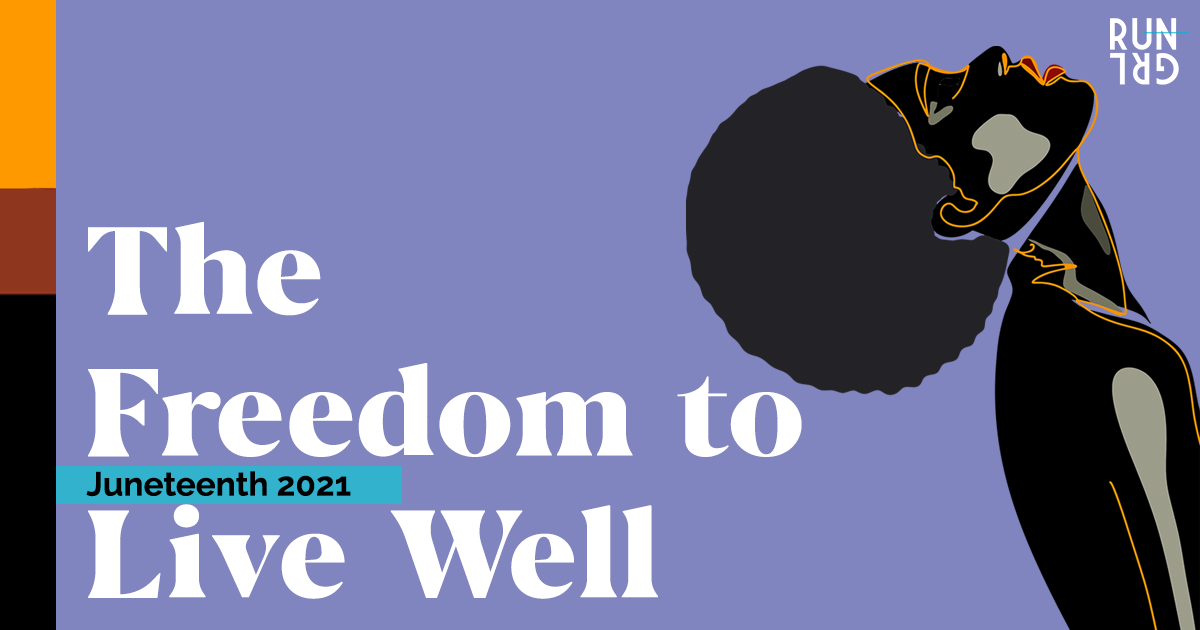Mind, Body and Space--Why Wellness is About More Than a Workout
Photo: Matthew Green for RUNGRL
By Na’Tasha Jones, Co-founder + CCO, RUNGRL
Mary Mbaba knows quite a bit about wellness. As a yoga instructor and creator of Vinyl and Vinyasa, she leads restorative classes (previously in-person pre-COVID) and meditation sessions online.
During these sessions and on social media, she often talks about the fact that Black mental health matters. “I do this work for the lives of Black bodies,” she says. “Straight, same gender-loving, men, women, queer, transgender, incarcerated, and released--some of whom will never have the opportunity to simply live.”
Photo: Matthew Green for RUNGRL
Her philosophy on wellness and meditation has been informed not only through her class experience, but also as a public health practitioner and social psychologist; she teaches medical students about public health as an adjunct instructor at Howard University School of Medicine.
There, she helps medical students consider the health of communities on a larger scale and the many factors that contribute to our individual and collective health, including social circles, who you hang with, and where you live, work and play.
Overall, Mary’s goal is to merge clinical wellness with general wellness practice. Her research focuses on the social influences, biases, attitudes, and stereotypes that lead people to making certain decisions about their health.
RUNGRL co-founder Na’Tasha Jones chatted with Mary about her practice, and how the idea of wellness is about so much more than working out.
Na’Tasha: What does it mean to you to be a Black instructor and practitioner of wellness?
Mary: Being Black and curating safe spaces that are designed for Black people is really important and to me it means that I’m giving back. I’m giving back to people that are important to me and to the Black race overall. We as Black people have endured slavery, war torn countries, police violence and more on a daily basis for hundreds of years. More than anything, people need space to heal.
This work also gives other non-Black people an opportunity to see how we do it and to celebrate our lives, history and healing.
Na’Tasha: What do you find most surprising about teaching the sociology of wellness to medical practitioners?
Mary: It can be really surprising when medical practitioners don’t yet know what it means to be well overall and how wellness manifests differently for different people. They learn bedside manner, but don't know the other social factors that determine peoples health outside. It’s not ingrained in their medical curriculum.
They don’t fully understand the social influences, biases, attitudes, and stereotypes that lead people to making certain decisions about their health.
Na’Tasha: What do you think constitutes a Black wellness space?
Mary: To me, it is a space that is specifically meant for you, that is tailored for you. But also, I think it needs to be able to incorporate things that speak to the whole person, like mindfulness, but from our unique perspectives. Things that we are coping with such as micro aggressions or, lately, the BIG agressions. It’s something that we are still learning how to cope with as Black people, and it’s so influential to how we view the world.
Na’Tasha: What would you say is the difference in having a Black wellness space vs. one that is not specifically intended for us?
Mary: It’s really a layered experience and different depending on the circumstance. Because you can be in a “Black space”, but then it might not be Black-owned, and that can be a totally different experience, too. Previously, I worked at a yoga studio as an instructor and was the only Black person there. Very often, as the class filled up and class time neared, the students would be looking around wondering where the instructor was, likely thinking it couldn’t possibly be me. It speaks to the expectation many people have right now and the need for us to normalize Black people in wellness spaces and as leaders in the field, too.
Na’Tasha: Have you ever received comments from clients who chose you because of your representation?
Mary: I actually had a young woman thank me for representing. She said that I had inspired her to be a yoga instructor and that she’s completing her own training in a few weeks.
Na’Tasha: What do you think are the next steps needed to make the wellness community more inclusive for Black people?
Mary: I think the next step is for the leaders of the community and the pioneers of this community to come together. Sometimes, there can be a lot of [unhealthy] competition between fitness professionals, even yoga instructors. That’s not how it’s supposed to be. We should work together as much as possible.
I also think we leaders need to be more educated. All wellness professionals need to be more well-versed on what trauma is and to try to understand what people are dealing with. For example, in yoga we often tell you to find your breath, come back to this place. Many trauma survivors don't have that breath, though. They don't have a breath or space to return to sometimes, and so you have to be able to meet people where they are. Yoga is all about understanding your surroundings and those surroundings can feel different for different people.
-
Follow Mary’s wellness and teaching journey on Instagram.
Na’Tasha Jones
Co-founder + Chief Content Officer












